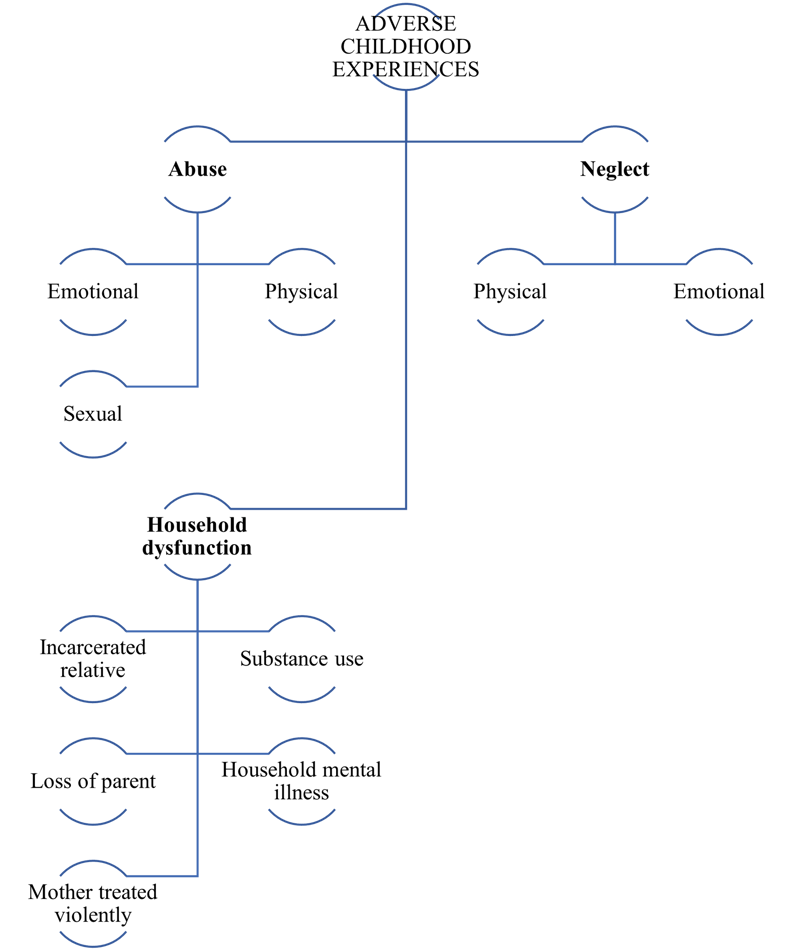What are ACEs? What is the ACE study?
Adverse Childhood Experiences is what ACEs stands for... children experience events... like having a parent with a mental illness or growing up in a divorced family, among other circumstances that could be considered ACEs... The ACE study found out how ACEs negatively impact...
PSYCHOLOGY & WELLBEING
Dutika Mahanta
6/20/20251 min read


Adverse Childhood Experiences is what ACEs stands for. Using the term ACE, it can be stated that children experience events that have the potential to negatively impact their physical and psychological well-being during their formative years of physical and mental development in childhood. There are majorly three distinct types of adversity that children face in their family environment: abuse, neglect, and family dysfunction as shown in Figure. A child may experience trauma from events like having a parent with a mental illness or growing up in a divorced family, among other circumstances that could be considered ACEs.
CDC-Kaiser Permanente (ACE) Study
The term "ACE" comes from the ACE study, which was conducted at Kaiser Permanente from 1995 to 1997 and included two waves of data collection. More than 17,000 Southern California Health Maintenance Organisation members who received physical examinations completed confidential surveys about their childhood experiences, behaviour, and current health status. The study's main findings revealed that ACEs are common. Approximately two-thirds of Americans have experienced at least one ACE, with one in every six having experienced four or more.
The ACE study found out how ACEs negatively impact individuals’ wellbeing throughout the lifespan and increases the risk factors for diseases. ACEs increase the risk of developing health problems later in life, such as obesity, diabetes, depression, heart disease, cancer, or stroke. ACEs can have impact on student learning and behaviour in the classroom. Children who have three or more ACEs are five times more likely to have difficulty attending school, six times more likely to have behavioural issues, and three times more likely to fail academically.
Stories
Sharing moments of reflections daily.
Journey
CONNECTING...
© 2024. All rights reserved.
